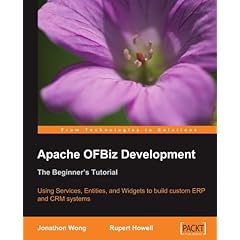This week I’m back in my other life.
At home, I have two lives. From about 8 in the morning until about 5 in the afternoon, I’m an IT manager, with a team of 5 very talented and productive programmers and designers, writing web applications and designing websites. This is extremely busy, and sometimes stressful, but for the most part I enjoy it thoroughly.
The rest of the time, I have a wife and two kids, and a lovely house, and I enjoy that life thoroughly too.
I do the first of these in order to pay for the second of these.
But then a few weeks of the year I do conferences, and this is truly a different existence. This week I’m at ApacheCon in New Orleans, with about a hundred of my third life friends, and a bunch of strangers that have come to hear us talk about Apache technologies. Yesterday and Today, I hung out in a board room with 10 of my friends to plan the next one, which will be in Amsterdam next spring, and I think we’ve put together a pretty great schedule for it.
And this time around, my Best Beloved has come along with me, to see what it is that I do at these things, meet some of my friends here, and generally enjoy this other part of my life that she doesn’t get to see much of.
I used to spend a lot more time on Apache stuff than I do now. With age and marriage come changing priorities. Also, with the new job comes an intense desire to not spend one more moment on the computer when I get home. I tend, also, to have a lot of extra projects going all the time, and for the last several months, they’ve all had to do with Apache, but none of them were involvement with the actual Apache community, which is a little sad. They were, for the most part, writing Apache training materials, which I enjoy, and I think I’m good at, but it’s a little isolating from the great people that comprise Apache itself.
Another thing that I have done with Apache over the last two years, and have largely abandoned since early this summer, is FeatherCast. I hope to pick that up again this week Perhaps as early as this morning. I really enjoy talking with folks from all over the technical world, and Apache particularly, and then sharing those conversations with you. There are so many people, so much smarter than I, working on fascinating projects, and it’s exciting both to talk with them, but also to give them the opportunity to tell the whole world about what they’re doing.
So, these weeks immersed in my third life are always rejuvenating, exciting … and generally expensive. But, I hear that my training class sold really well, so perhaps we’ll at least break even for the week.



 There’s a new project in the Apache Incubator. It’s called Stonehenge, and it’s about producing sample applications that implement industry standards. The purpose of these sample applications is to show developers how to develop interoperable applications. There’s a
There’s a new project in the Apache Incubator. It’s called Stonehenge, and it’s about producing sample applications that implement industry standards. The purpose of these sample applications is to show developers how to develop interoperable applications. There’s a